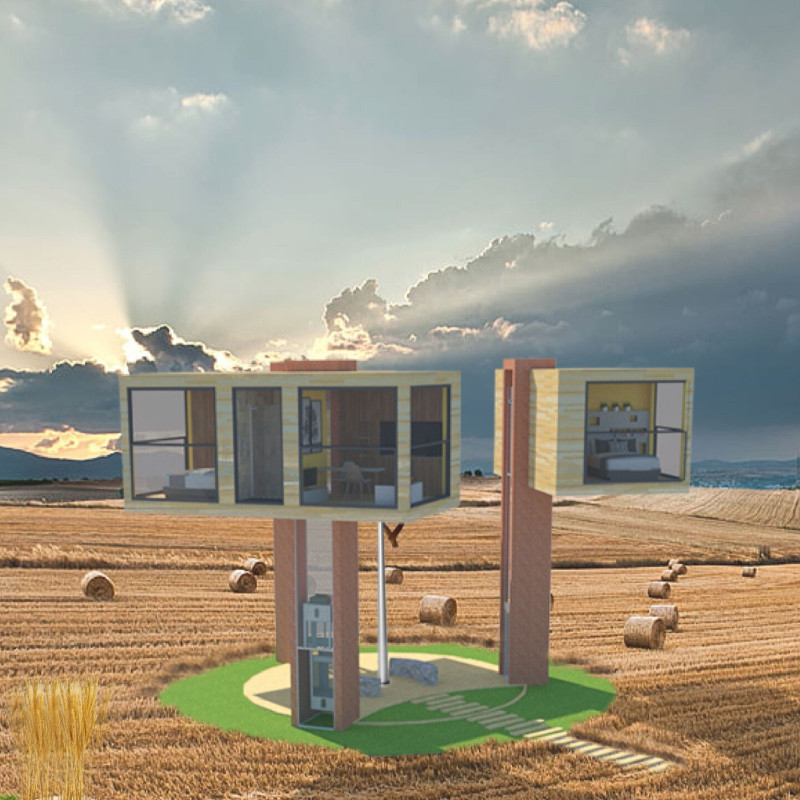5 key facts about this project
The Crop Circle House shows a thoughtful design that blends well with nature. Its circular shape stands out and encourages a connection with the environment. The project aims to create comfortable living spaces that serve both private and communal functions. The setting enhances the overall experience of the home, making it a place where the occupants can enjoy everyday life in harmony with the outside world.
Design Concept
The circular design of the Crop Circle House is central to its identity. This shape not only provides a unique look but also allows for flexible space usage. The open layout helps natural light flow through the house, making it feel larger and more inviting. Rooms are positioned to promote easy movement, supporting both social gatherings and personal time.
Functional Areas
The layout effectively divides the space into key functional zones. The kitchen and lounge area, measuring 24.90 m², serves as the heart of the home. It is designed to facilitate interaction and activity. A separate bedroom provides privacy, allowing personal space within the home. The design also includes a water closet, which adds to the overall practicality of the living environment.
Sustainability Features
Sustainability is a key feature of the Crop Circle House. Innovative systems for collecting rainwater, as well as using wind and solar power, highlight the commitment to reducing environmental impact. These choices aim to lessen reliance on external resources, making the home more self-sufficient. Such sustainable practices are important for modern living.
Power and Energy Management
The house is equipped with a power system designed for efficiency, providing a capacity of 3.5 kW for electricity and hot water. This attention to energy management ensures that basic needs are met without waste. The careful planning of utilities supports a practical living experience for the occupants.
The architectural design emphasizes both form and function, resulting in a space that serves daily needs while remaining connected to its natural surroundings.




















































